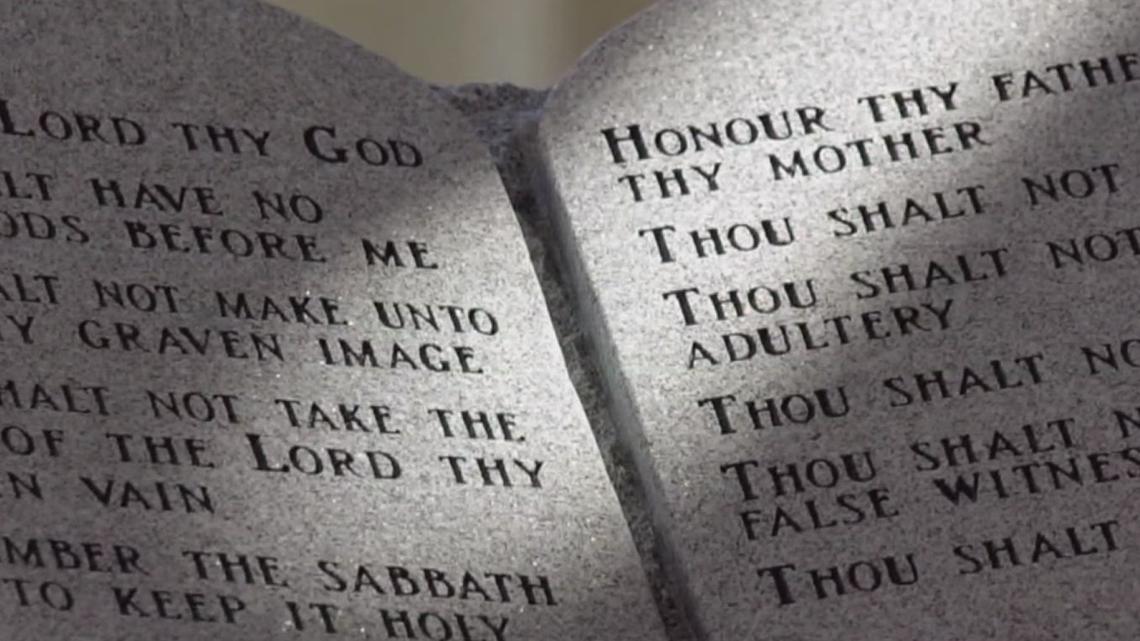
Senate Bill 10 calls for public schools to hang a Ten Commandments poster no smaller than 16 by 20 inches.
CORPUS CHRISTI, Texas — The Ten Commandments could soon hang in every Texas public school classroom under a bill gaining traction in the state Legislature. Senate Bill 10 has passed both the Senate and the House. It’s now heading back to the Senate for one final vote on an amendment added by the House before going to Governor Abbott’s desk
“It really just seems what Texas is trying to do, at least the people that want it in the classrooms, is they’re hoping that even though the Supreme Court has already ruled on this in 1980, that now the court composition has changed and the legal test they use to determine church/state entanglement has changed, that they might be able to pull out a victory,” TAMU-K political science professor Travis Braidwood said.
That 1980 case Braidwood mentioned is the same one historian Dr. Bill Chriss points to when looking at what’s happening now in Texas. He says the law being pushed today is nearly identical to the one struck down 45 years ago. But with a different U.S. Supreme Court in place, the outcome could be very different.
“The name of that case was Stone v. Graham. It came out of Kentucky, and the United States Supreme Court determined 45 years ago that school districts cannot be forced to place the Ten Commandments in the classroom. A lot of times, people don’t give up in legal fights.” Chriss said.
The First Amendment’s Establishment Clause, which prevents the state from establishing a religion, has often been the reason that attempts at using taxpayer dollars for religious purposes haven’t worked.
But supporters of Senate Bill 10 argue that the Ten Commandments are part of U.S. history—giving them the leverage to say that the implementation is for historical purposes rather than religious endorsement.
“When you’re talking about taxpayer dollars being expended, the court historically has said, ‘No, those direct infusions are not constitutional,’” Chriss said. “But accommodation has always been accepted. So, the question here is: Is this directly a form of accommodation or is this direct endorsement?”
Dr. Chriss says while the Supreme Court currently leans conservative, it’s unclear how courts will ultimately interpret it, leaving the future of the law hanging in the balance.
“This is frankly unprecedented. It hasn’t met with much success in the past, but it’s meeting with more success currently. It remains to be seen what the future holds. It will depend a lot on who the next president is, and it will depend a lot on what the makeup of the United States Supreme Court is four or five years from now.”
